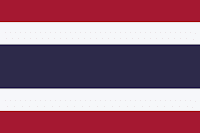* * * * *
Alright, dear reader, enough with the run down on my dinner companions –
what about me? (He said selfishly.)
As I indicated before, Val covertly
approached Golden West Airlines (Goldy) and got me an interview with the Chief
Pilot Abe August. Who made it clear to
me that, if I was serious, I’d have to visit Toronto, Canada, and take the
manufacturer’s ground school course on the Twin Otter – all on my own
nickel. So I zipped off to Toronto,
attended De Havilland’s DHC-6 Twin Otter Ground School, passed their written
exam, got their graduation certificate and presented it to “Goldy.” At which point the chief pilot on
20th May, 1977, had me take an “evaluation hop” with Capt. Singleton
in the “Twatter” – to see if I could actually fly it. I did...and it was love at first
sight!
The De Havilland DHC-6 Twin Otter
possessed two Pratt & Whitney PT6A turboprop engines, had a max takeoff
weight of 10,500 pounds, and cruised along at an average 150 mph while carrying
18 passengers. The captain and first
officer had their own doors for easy cockpit access, and the throttles were
mounted overhead – on the cockpit’s ceiling – which you could “twist” at
touchdown – hydraulically reversing the pitch on the propellers – entering
reverse thrust and stopping on a dime.
It had a tough, fixed, tricycle landing gear with outsized wheels, and a
high wing design - keeping the engine’s propellers well off the ground – making
it the most practical rough-field-bush airplane I had ever flown.
God Almighty, dear reader! How I wished I’d had this amazing aircraft in
Africa!
DHC-6 Cockpit with both doors open.
DHC-6 basic instrument
panel.
DHC-6 overhead throttles with
twist-grips.
Requiring the FO (me) to have a
long arm to reach them.
DHC-6 passenger
cabin.
At this time “Goldy” had a fleet of eleven
Twin Otters, plus three Short 330s; another twin turboprop with an average
cruise speed of 200 mph and a 30-passenger capacity.
Short 330. Golden West was based at the old LAX historical
terminal.
Upon landing from my “evaluation ride,” I
was hired by “Goldy” and given a class date.
*
* * *
*
In late May of 1977, I stepped inside a
darkened, shabby banquet room at a run-down motel on Century Boulevard, near the
entrance to LAX. This was where Golden
West Airlines was holding their first new-hire ground school in ten
years.
At this location I initially laid eyes
on Julie Clark, dear reader, as she was also in this group of twenty new-hire
pilots.
As the actual ground school had been held
at the factory in Toronto, “Goldy’s” Ground School was basically a joke –
reduced to merely a paperwork exercise for the FAA; filling in the required FAA
hours. We new-hires not learning
anything we didn’t already know regarding the aircraft, airline operation and
the FAA’s FARs.
There was one informative high, or low,
spot – depending on how one looked at it – which occurred. This was when I inadvertently learned that
“Goldy’s” pilots were represented by a union: the “Teamsters.” Having never been involved with a union – I
was a total babe in the woods.
Right in the middle of ground school, the
chief pilot got up on the stage and informed us that our “shop steward” was here
from Detroit; prompting the chief pilot and all the instructors - including the
FAA inspectors observing our class – to vacate the dark banquet room en
masse.
And as they did, dear reader, two
questions erupted in my new-hire brain: What the fuck is a “shop steward?” And why is he coming all the way from Detroit
in Michigan?
A man took the darkened stage, and when he
stepped into the solitary light over the podium, I instantly sensed I’d been
dropped in a movie: The Godfather.
He wore a tailored, expensive, steel-blue
sharkskin suit with red silk tie, matching hanky, and gaudy-gold Rolex. His aquiline nose had been broken, while his
curly black hair appeared to contain a full quart of motor oil, and his upper
lip sported the hint of a pencil-thin mustache.
Valerie’s caricature sketch of “my” shop
steward.
It was his voice,
however, that held us spellbound. For we
all heard Marlon Brando’s whisky-pitched whisper from The
Godfather!
I nearly burst my bladder, dear reader,
trying not to laugh. Surely this joker
was having us on.
He never introduced himself. Instead, he got to the point, stating,
“Welcome to da Brotta-hood a Teamsters.
Youse are all on probation for a year and will be paid seven hundred
clams a month. Youse paycheck will be
docked twenty-five clams a month. Dat’s
da union dues. Any
questions?”
This, dear reader, was no joke. All stateside airlines at this period placed
new-hire pilots on probation for a year and paid them chump change – even before
their paycheck got raped by the IRS, state and unions. And at any moment, if you didn’t part your
hair correctly, the airline could dump you.
To put up with this bullshit...you really had to love
flying.
One of the new-hire pilots in the back
raised his hand.
“Yeah, buddy,” our shop steward said –
motioning towards him.
The new-hire asked, “So twenty-five
dollars will be taken out of our paychecks automatically each month by the
Teamsters?”
“Yeah...dat’s right,
buddy.”
Another hand went
up.
“Yeah, buddy.”
Another new-hire asked, “D-During our
probation if the company should fire us...will the Teamsters represent us in
court.”
The shop steward shook his head in the
negative, and said, “No, buddy. If youse
on probation da Teamsters don’t represent youse.”
Again, another hand went
up.
“Yeah, buddy.”
The hand’s owner asked, “But we still have
to pay the twenty-five a month during our first year of probation...even though
the Teamsters won’t represent us?
“Dat’s right,
buddy.”
A last hand went up.
The shop steward nodded towards
it.
The
hand’s owner nervously inquired, in a squeaky voice, “I’m not certain of the
others...b-but twenty-five dollars is a lot of money. W-What if we don’t want to join the
Teamsters?”
I saw the shop steward flinch – as if being
gut-shot – then he pulled himself together, straightened his tie, cleared his
throat, and said, “Den how’s youse gonna fly wit broken
wrists?”
Magically; all questions abruptly dried
up.
If I hadn’t needed the flying hours and
airline experience, dear reader, I would have gotten up and walked out. Alternatively, I reluctantly bit the bullet,
and got in bed with the mob out of Detroit.
I still have my Brotherhood of Teamsters laminated I.D.
...somewhere. Which, whenever I’ve seen
it, has always made me wonder - did the Teamsters actually manufacture hot dogs
out of Jimmy Hoffa? Then sell them at a
Red Socks game? I’m told what made the “dogs” so tasty was the special mustard.
GO SOCKS!
* *
* * *



















Comments
Post a Comment